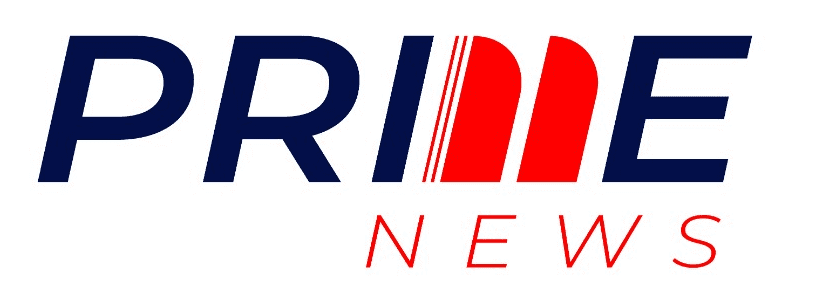The licensed electricity companies have presented a 2.2 trillion shillings budget to the power regulator, the Electricity Regulatory Authority (ERA) which the Authority will among others, consider to set the electricity end-user tariffs for 2023.
The companies in the generation, transmission and distribution of electricity business, which include; Uganda Electricity Generation Company Limited (UEGCL), Uganda Electricity Transmission Company Limited (UETCL), Uganda Electricity Distribution Company Limited (UEDCL), Eskom Uganda Limited, and Umeme Limited, on Thursday presented and defended their revenue requirements to ERA during the annual tariff review public hearing organized by the Authority in Kampala.
The revenue requirements are contained in the companies’ applications for tariff review as submitted to ERA last month.
In its application, UEGCL presented its revenue requirements for 2023 worth 58 billion shillings.
In the transmission segment, UETCL presented its revenue requirements for 2023 worth 1.5 trillion shillings.
However, UETCL is under a multi year tariff regime, which includes 2024 and 2025. In its tariff application therefore, the company asked for 1.64 trillion shillings for 2024, and 1.66 trillion for 2025.
In the distribution segment, UEDCL highlighted its strategic focus areas for the year, and they included business growth, sustainability, customer service, excellence and operational efficiency.
It presented a revenue requirement of 42.9 billion shillings.
Eskom Uganda Limited also presented its tariff review application with a revenue requirement of 101,226.21 per megawatt per hour.
However, the application for Eskom is three months, ending in March 2023 because its concession agreement will end in March. The company will then handover the assets to the asset owner which is UEGCL.
While making the presentation, the Eskom Fiance Director, Stephen Byaruhanga highlighted that the company does not expect to make any new investment during this period.
He noted that over the 20 year period the company has operated in Uganda, an investment worth USD 52 million had been made.
Umeme Limited also presented its revenue requirements in its tariff application for 2023, amounting to 648.783 billion, and the distribution price of 168 shillings per kilowatt hour.
The Electricity Act, 1999 as amended by Act No.4 of 2022, charges ERA to supervise the electricity sub sector in Uganda.
The Act charges ERA with the responsibility of establishing a tariff structure and tariff adjustments.
The Authority sets out an Annual Base Tariff at the beginning of each calendar year. The base tariff is adjusted by ERA on a quarterly basis to provide for changes in the macro-economic factors, namely; the Consumer Price Index (inflation), the exchange rate of the Uganda Shilling against the United States Dollar, and the international fuel prices.
In October this year, ERA approved the new electricity end-user tariffs to be charged by Umeme Limited for the supply of Electrical Energy in the billing period, October to December 2022 (quarter 4 of this year).
In this quarter 4, however, the tariffs were raised.
For instance, the tariff for domestic consumers purchasing energy units between 16 – 80 units was raised from 747.5 shillings per unit in quarter 3 (July to September) to 820.9 shillings per unit in quarter 4 (October to December).
Similarly, the tariff for domestic consumers purchasing energy units above 150 units was raised from 747.5 shillings per unit in quarter 3 to 820.9 shillings per unit in quarter 4.
ERA said the approved tariffs had been determined in consideration to the changes in the macro-economic factors that included; international prices of fuel, exchange rate of the Uganda Shilling against the United States Dollar, Core Consumer Price Index (Inflation), the energy generation mix, and the costs approved by the Authority.
The Uganda Shilling has continued to come under intense depreciation pressure against the US Dollar.
The Uganda Shilling had depreciated against the Dollar from Ush/USD 3,564.09 used in the determination of the 2022 Annual Base Tariffs, to Ush/USD 3,810.7 as at 31st August 2022. This represents a depreciation of 6.92%.
The Consumer Price Index (CPI) had increased from 115.35 as reported by the Uganda Bureau of Statistics for November 2021 to 122.87 for August 2022 representing a 6.52% movement in inflation.
The international fuel prices for crude oil for August 2022 was recorded at USD 117.72 per barrel compared to USD 80.37 per barrel used in the determination of the 2022 Annual Base Tariffs. This represents an increase in the International Fuel Prices by 46.47% from the base period.
At the annual public hearing for tariff review on Thursday, we asked ERA Board Chairperson, Sarah Wasagali Kannabi whether the tariffs for 2023 will be reduced.
She replied: “we will analyse this information [presented by electricity companies and reactions from the general public], and the Board will come up to determine the tariffs for the next financial year. We do this transparently because we want to involve all stakeholders in a transparent manner. For now, I cannot say wether the tariff is going to lower or not because there are a number of considerations that we put across to determine the tariff, including the exchange rate, the inflation and so on. For now, I cannot commit the direction of the tariff.”
“The authority will consider the views and submissions from all stakeholders received during the consultation process and the responses received from the licensees, and we take the final decision. It is the board that will take the final decision,” she added.

